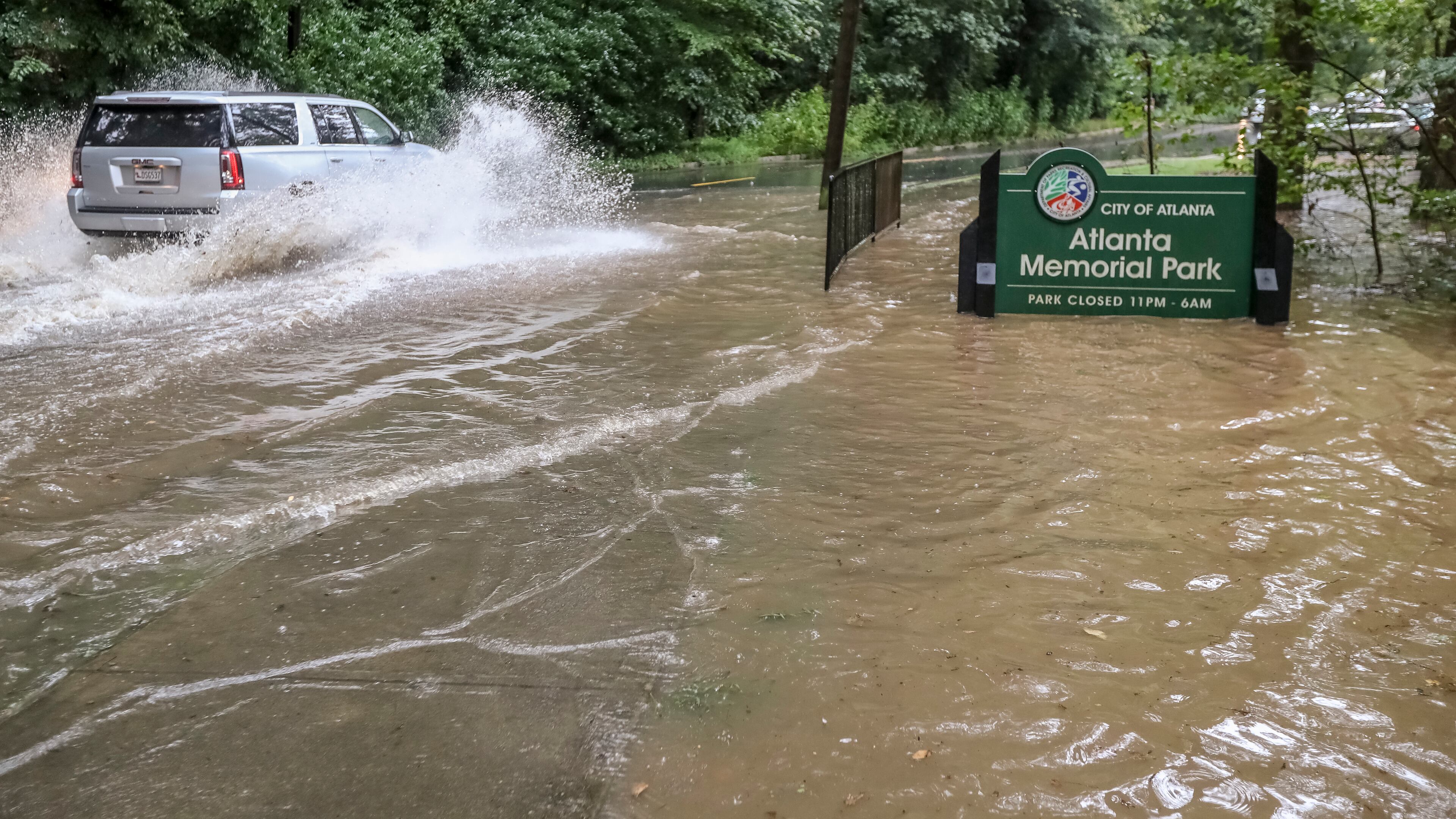Hurricane seasons are starting earlier. Scientists think they know why

Rising ocean temperatures have shifted the window for dangerous tropical storms to form earlier in the calendar year, new research has found, with potential implications for Georgians living on the coast and farther inland.
For more than five decades, June 1 has marked the beginning of hurricane season, but in recent years, the Atlantic Basin has spawned several named storms in May and even April. Some experts now say that a rethink of the official start of hurricane season may be needed.
Since 1979, the development of the year’s first named storm has moved earlier at a rate of roughly five days per decade, according to new findings published Tuesday in the scientific journal Nature Communications. Meanwhile, the date of the first U.S. storm landfall each year has also advanced at a rate of around two days every 10 years since 1900.
“If you live in an area that gets landfalls or commonly gets (storm) remnants as they move inland, you need to be aware that those risks now start in mid-May, rather than in early June,” said Ryan Truchelut, chief meteorologist at the weather forecasting and consulting firm WeatherTiger and the lead author of the Nature study.
Truchelut said the U.S. is not likely to see massive hurricanes make landfall in late spring, at least for now. But Georgia and other Southeastern states could see an increase in tropical storms earlier in the year.
A recent example is Tropical Storm Alberto, which made landfall on the Florida Panhandle in 2018, before trudging inland across Georgia, the Carolinas and Virginia, where it dumped more than 12 inches of rain in some places. All told, the storm resulted in at least eight deaths and an estimated $125 million in damages across the Southeast.
Storms like Alberto may not pack winds on par with a major hurricane, but they can still produce destructive floods.
The Georgia Emergency Management and Homeland Security Agency (GEMA/HS) said it has observed the shift in hurricane activity, but is not planning changes to its preparations, which already begin at the start of each calendar year.
“Because our planning and preparation efforts are year-round, we are able to begin our preparedness and response activities immediately when a tropical system has the potential to impact Georgia,” GEMA/HS meteorologist Will Lanxton said in an emailed statement.
The study also found that the increasingly active hurricane preseasons are being driven in large part by rising temperatures in the Atlantic Ocean and the Caribbean.
Hundreds of years of burning fossil fuels have raised concentrations of greenhouse gases in Earth’s atmosphere, creating a heat-trapping blanket that is warming the planet. Much of that extra heat has been absorbed by the world’s oceans — In January, a new study confirmed that global average ocean temperatures hit a new record high in 2021 for the third straight year.
Higher sea surface temperatures can enable storms to form earlier and intensify rapidly, said Marshall Shepherd, the director of the atmospheric sciences program at the University of Georgia.
“In past years, hurricanes were running on 87 octane fuel,” Shepherd said. “Now, they’re running on 93 or 95 octane fuel because of the extra warmth in the oceans.”
The research adds to the growing body of evidence that human-caused climate change is altering hurricane season and triggering other shifts that can make tropical storms more destructive.
Global sea levels have risen between eight and nine inches since 1880, allowing storm surge to reach farther inland. Warmer air temperatures also mean storms can hold more water, leading to increased rainfall rates that raise the risk of damaging floods.
Though the start of the current hurricane season has been quiet so far, there is still time for the tropics to wake up, since hurricane activity in the Atlantic usually doesn’t peak until early September.
The federal government also recently announced that it still expects the above-normal activity in the coming months, despite the slow start to the season.
A note of disclosure
This coverage is supported by a partnership with 1Earth Fund, the Kendeda Fund and Journalism Funding Partners. You can learn more and support our climate reporting by donating at ajc.com/donate/climate/



